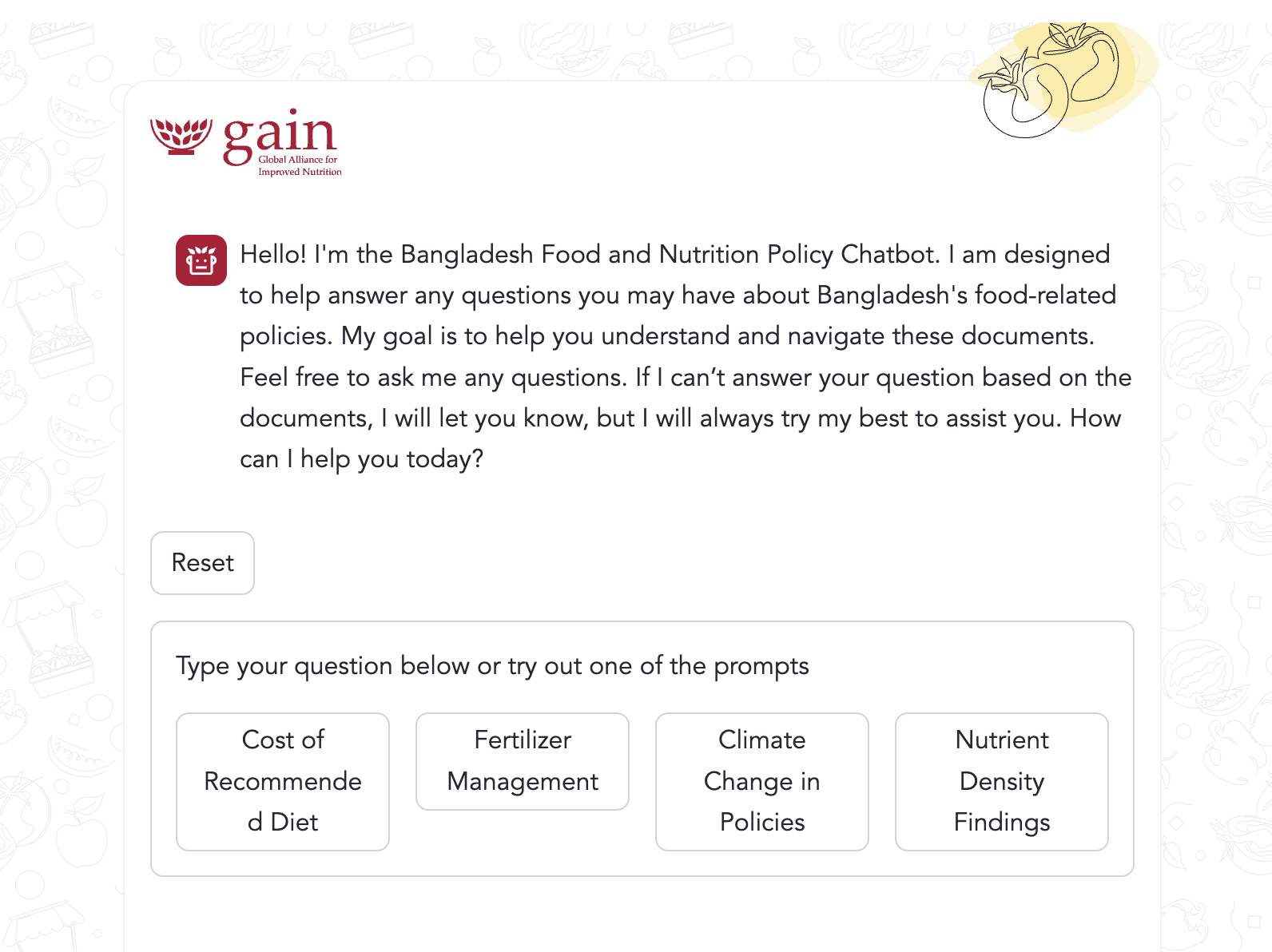Food systems are crucial for achieving sustainable development: as sources of employment, of nourishment, and of ecosystem services, such as pollination and biodiversity. But they also face serious challenges. At the global level, they use approximately 40% of the planet’s ice-free land and are responsible for roughly 30% of human-caused greenhouse gas emissions—all while much of the population suffers from micronutrient deficiencies and the burdens of overweight and diet-related non-communicable diseases are growing. In Bangladesh, with agriculture employing 45% of the labour force, food systems play a substantial role in supporting livelihoods as well as ensuring food security. However, the country faces significant challenges, including high levels of undernutrition and micronutrient deficiencies, particularly among women and children. Bangladesh’s food systems are also under increasing strain from climate change, with rising temperatures, erratic rainfall, and frequent flooding threatening crop yields and the livelihoods of millions. Addressing these challenges requires a holistic approach involving sustainable agricultural practices, improved dietary diversity, and greater resilience to climate-induced shocks.
GAIN’s Nourishing Food System Pathways programme seeks to support these types of inclusive, coherent food systems transformations in ten countries, including Bangladesh. A key first step in advocating for changing food policies is understanding them. However, policies are often complex, dense documents using technical language – difficult for non-experts to find or understand. For example, Bangladesh’s National Adaptation Plan contains numerous relevant references to food and agriculture – but buried in a 260-page-plus document also covering various other topics.
Chatbots based on artificial intelligence (AI)-powered large language models could help solve this problem: they enable users to ask plain language questions and get plain language answers back. But those publicly available online, like ChatGPT, can draw on unreliable sources and often lack context-specificity. To address this challenge, we sought to develop a custom chatbot that would help users explore the food policies of Bangladesh, drawing directly on the contents of policy documents.

Using OpenAI LLM (GPT-4o) and embedding models, we developed a Retrieval-Augmented Generation (RAG)-based chatbot and connected it to a database of 28 publicly accessible food and nutrition policy documents from Bangladesh. RAG is an AI framework that combines retrieval of relevant information from external knowledge sources (in this case, the food and nutrition policies) with generative AI to produce more accurate and contextually informed responses. Particular effort was put into striking a balance between using the processed documents versus the considerable knowledge that modern LLMs natively have access to; we sought to ensure accuracy while also making the chatbot widely useable for diverse queries. Several rounds of testing were used to collect feedback from different potential users and refine the chatbot.
The result is a chatbot that can take user queries, reformulate them as needed, retrieve relevant text chunks from the database, and generate responses based on those. For example, a user could ask ‘what are the key strategies for improving food safety in Bangladesh,’ and the chatbot would identify the relevant policy and summarise the key strategies listed in it – such as strengthening certification agencies and engaging in consumer education.
All testers agreed the resulting chatbot has a high level of accuracy, provides clear and understandable responses to natural-language questions, and is easy to use, suggesting it largely meets the main goal of making policies more accessible to food systems actors. A key additional benefit lies in the centralised database and user interface that the chatbot provides, compiling a set of relevant, vetted policy documents in one easily accessible location. This makes it a valuable reference for anyone seeking comprehensive information on food and nutrition policies in Bangladesh. However, some limitations to the chatbot arose in terms of comparing across policies and providing responses that considered all policies comprehensively, which limits potential applications as a research tool; a more complex chatbot architecture involving agents would probably be needed to achieve these goals.
Generative AI-powered chatbots have been the subject of much excitement in the past few years due to the possibilities they raise for transforming multiple parts of society – as well as the potential risks. Their use within food and nutrition programming is in its infancy, but our experience suggests there is potential for leveraging them to demystify food and nutrition policies, which can help to improve policy engagement and advocacy.